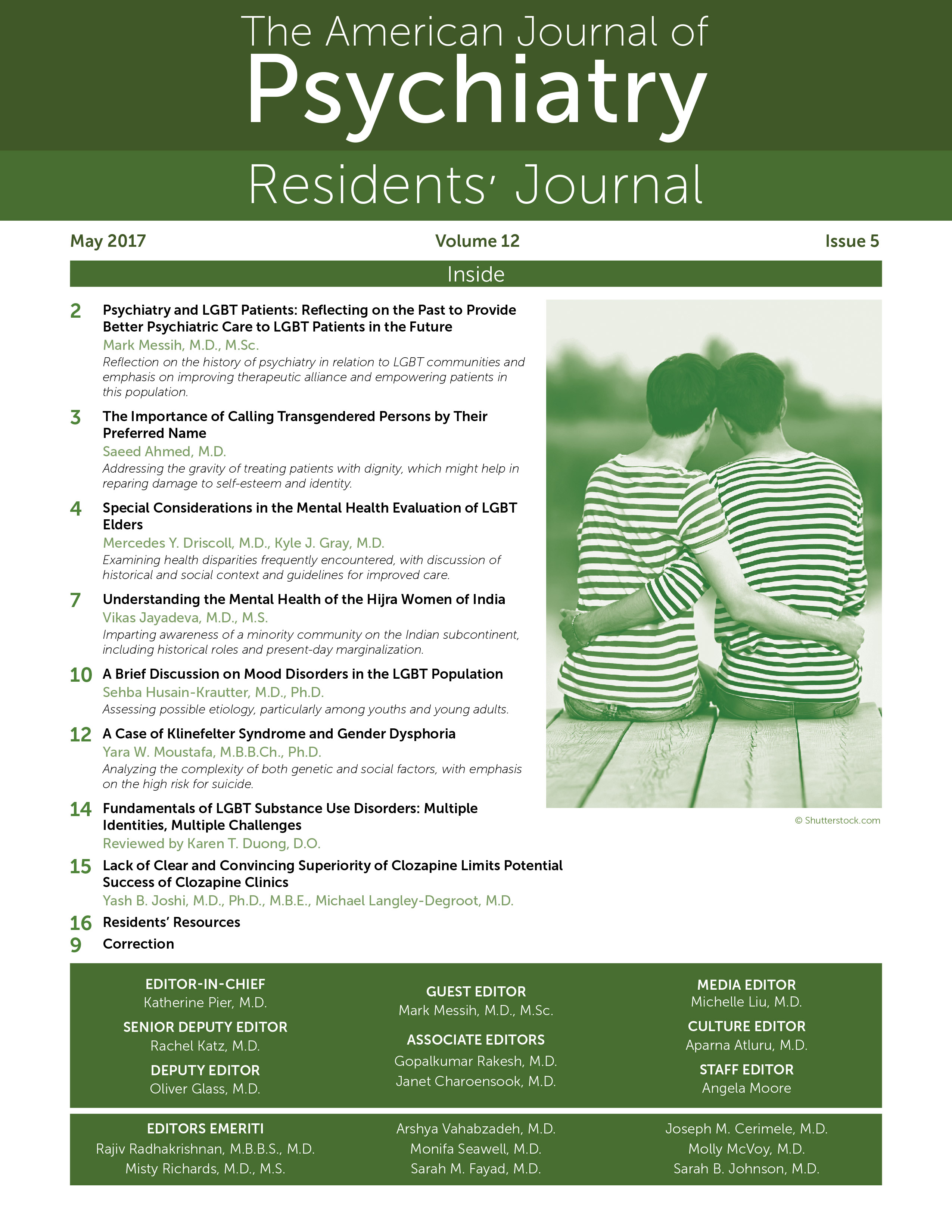Psychiatry and LGBT Patients: Reflecting on the Past to Provide Better Psychiatric Care to LGBT Patients in the Future
“The appearance in nineteenth-century psychiatry … of a whole series of discourses on the species and subspecies of homosexuality … made possible a strong advance of social controls into this area of “perversity”; but it also made possible the formation of a “reverse” discourse: homosexuality began to speak in its own behalf, to demand that its legitimacy or “naturality” be acknowledged”—Michel Foucault. (1)
References
Information & Authors
Information
Published In
History
Authors
Metrics & Citations
Metrics
Citations
Export Citations
If you have the appropriate software installed, you can download article citation data to the citation manager of your choice. Simply select your manager software from the list below and click Download.
For more information or tips please see 'Downloading to a citation manager' in the Help menu.
View Options
View options
PDF/EPUB
View PDF/EPUBGet Access
Login options
Already a subscriber? Access your subscription through your login credentials or your institution for full access to this article.
Personal login Institutional Login Open Athens loginNot a subscriber?
PsychiatryOnline subscription options offer access to the DSM-5-TR® library, books, journals, CME, and patient resources. This all-in-one virtual library provides psychiatrists and mental health professionals with key resources for diagnosis, treatment, research, and professional development.
Need more help? PsychiatryOnline Customer Service may be reached by emailing [email protected] or by calling 800-368-5777 (in the U.S.) or 703-907-7322 (outside the U.S.).
